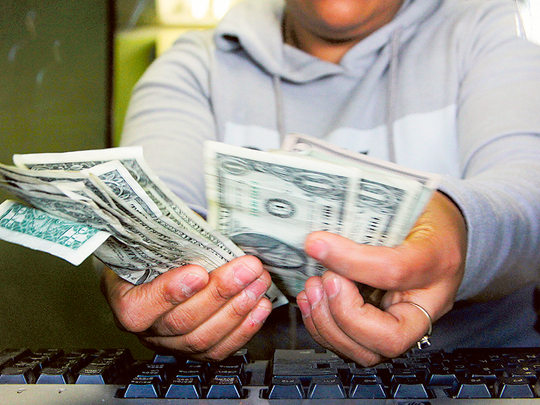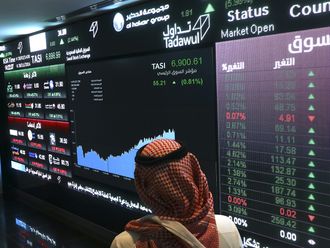
New York: The dollar’s climb toward 110 yen lost momentum before Japan’s Prime Minister Shinzo Abe meets President-elect Donald Trump in New York.
The US currency retreated from a five-month high of 109.76 yen reached Wednesday amid speculation its surge since the presidential election was overdone. Traders will watch for Trump’s comments, who had earlier accused Japan of currency manipulation. Federal Reserve Chair Janet Yellen testifies before the Joint Economic Committee of Congress Thursday. Inflation and jobs data from the US may also provide signals on the Fed’s future policy path.
“We are having a little bit of a pause for breath here” in dollar-yen, said Jeremy Stretch, head of Group-of-10 foreign-exchange strategy at Canadian Imperial Bank of Commerce in London. “One suspects the issue of currency valuation, either explicitly or implicitly, will be at, if not the forefront but certainly on the sidelines, of discussions” between Abe and Trump.
“We’ve got a couple of events to keep an eye on in the US — massive data but also most importantly the Fed Chair up on Capitol Hill, so that’s causing a little bit of consolidation,” Stretch said. “We are waiting for fresh impetus, fresh direction.”
The dollar was little changed at 109.01 yen as of 10:40am in London, after gaining as much as 0.4 per cent. The Bloomberg Dollar Spot Index, which tracks the US currency against 10 major peers, fell 0.2 per cent after reaching the highest level since February on Wednesday. The gauge surged 2.8 per cent last week, the most since September 2011.
The euro climbed for the first time in nine days after European Central Bank Executive Board member Yves Mersch said extraordinary stimulus measures are not intended to be permanent and should be withdrawn as soon as possible.
‘QE Fatigue’
Europe’s shared currency is being helped by a weaker dollar and also by ECB policymakers “not showing a strong willingness to necessarily extend quantitative easing,” said Thu Lan Nguyen, a currency strategist at Commerzbank AG in Frankfurt. “We’ve seen that for a while now there’s a certain QE fatigue on the part of ECB council members.”
The euro rose 0.4 per cent to $1.0731, after dropping to $1.0666 Wednesday, the lowest since Dec. 3.
A technical indicator known as the relative-strength index suggests the US currency’s advance against the yen this week may be excessive. The gauge was above the 70 level, a sign to some traders the move has gone too far, for a fourth day. Since early 2015, the gauge has risen above that threshold on just four separate occasions and has failed to sustain the move for more than two weeks.
Trump has vowed to drop a Pacific trade deal and accused Japan of manipulating its currency. If he reiterates his stance during his meeting with Abe, it will hurt sentiment toward the yen, according to Kengo Suzuki, the chief currency strategist at Mizuho Securities Co. in Tokyo. The president-elect has also said Japan wasn’t spending enough on US military bases, stirring concern about the bilateral security relationship.
.












